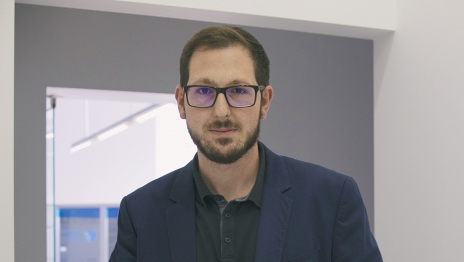PATRIC KOECK – THE NEW CEO IN CREAMFINANCE GROUP

Patric Koeck – the new ceo in creamfinance group
Creamfinance appoints new CEO to continue expanding near-prime products and growing past EUR100mil revenue.
Patrick Koeck, the new CEO of Creamfinance as of 15 January, is set a goal to expand the business consistently at around 20% per annum and aims to grow sustainably above €100M annual revenue within two years despite the complex regulatory landscape.
“Staying ahead of ever-changing regulations is tough and operating across EU and Latam requires a lot of effort. Strong focus on operations and a steady launch of our full product offer across all of our markets is in my view critical at this stage of our company’s growth,” Koeck commented.
The company is said to have gone through a hyper-growth phase having raised over EUR100M in funding with over 3.6M registered users and EUR700M in issued loans across 7 countries. It has now entered a mature state where the key focus is set on risk management, operational excellence and efficiency. The skillset of the new CEO is expected to enable Creamfinance to grow steadily and consistently.
Koeck has previously worked as a Chief Operating Officer, being part of the company’s core team for over 6 years.
“It is an honor to gain confidence from the co-founders, who have been great mentors to me, to lead Creamfinance to the next level. I am looking forward to cooperating with the team to pursue significant growth opportunities ahead and I am certain that it will lead to stable long term profits,” Koeck said in a recent statement.
The former CEO, Matiss Ansviesulis and the Chairman of the Board, Davis Barons, reflected that for the past 8 years Creamfinance has been their life with many ups and downs. During that period they have not only built a sizeable business but were also very fortunate to have worked with some very talented people from all over the world. “However, now we recognize that the team we have built is capable of taking the company to the next level on its own. We feel that our company is well positioned,” Ansviesulis concluded.
The company stated that both co-founders remain with Creamfinance as Board Members and will continue working on creating new business opportunities.
Important:
- In 2019 the company has grown revenue close to €80M while maintaining profitability.
- The company is closely cooperating with its strategic investor Capitec, the biggest retail bank in South Africa, to improve the Cream’s pricing model and client scoring for long term loans.
- After launching Creamcredit, a new custom-priced 5 year loans of up to EUR10,000 in Latvia in 2018, the company is now expanding this offer to all EU markets.
- Having launched in 2016 in Mexico, Creamfinance has now reached profitability and become a leading online lender in the market with an innovative app-based loan offer. Mexico is a key future growth market for the company.

CIMA i Templar Executives podpisały memorandum o współpracy w celu wzmocnienia odporności cybernetycznej w Europie

Z ziemniaka zrobili biznes

Jak wykorzystać kryptowaluty w biznesie?
Więcej ważnych informacji
 Jedynka Newserii
Jedynka Newserii

 Jedynka Newserii
Jedynka Newserii

Ochrona środowiska

Kraje dotknięte powodzią z 2024 roku z dodatkowym wsparciem finansowym. Europosłowie wzywają do budowy w UE lepszego systemu reagowania na kryzysy
W lipcu Parlament Europejski przyjął wniosek o uruchomienie 280,7 mln euro z Funduszu Solidarności UE na wsparcie sześciu krajów dotkniętych niszczycielskimi powodziami w 2024 roku. Polska otrzyma z tego 76 mln euro, a środki mają zostać przeznaczone na naprawę infrastruktury czy miejsc dziedzictwa kulturowego. Nastroje polskich europosłów związane z funduszem są podzielone m.in. w kwestii tempa unijnej interwencji oraz związanej z nią biurokracji. Ich zdaniem w UE potrzebny jest lepszy system reagowania na sytuacje kryzysowe.
Handel
Nestlé w Polsce podsumowuje wpływ na krajową gospodarkę. Firma wygenerowała 0,6 proc. polskiego PKB [DEPESZA]

Działalność Nestlé w Polsce wsparła utrzymanie 45,2 tys. miejsc pracy i wygenerowała 20,1 mld zł wartości dodanej dla krajowej gospodarki. Firma przyczyniła się do zasilenia budżetu państwa kwotą 1,7 mld zł – wynika z „Raportu Wpływu Nestlé” w Polsce przygotowanego przez PwC na podstawie danych za 2023 rok.
Polityka
M. Kobosko: Surowce dziś rządzą światem i zdecydują o tym, kto wygra w XXI wieku. Zasoby Grenlandii w centrum zainteresowania

Duńska prezydencja w Radzie Unii Europejskiej rozpoczęła się 1 lipca pod hasłem „Silna Europa w zmieniającym się świecie”. Według zapowiedzi ma się ona skupiać m.in. na bezpieczeństwie militarnym i zielonej transformacji. Dla obu tych aspektów istotna jest kwestia niezależności w dostępie do surowców krytycznych. W tym kontekście coraz więcej mówi się o Grenlandii, autonomicznym terytorium zależnym Danii, bogatym w surowce naturalne i pierwiastki ziem rzadkich. Z tego właśnie powodu wyspa znalazła się w polu zainteresowania Donalda Trumpa.
Partner serwisu
Szkolenia

Akademia Newserii
Akademia Newserii to projekt, w ramach którego najlepsi polscy dziennikarze biznesowi, giełdowi oraz lifestylowi, a także szkoleniowcy z wieloletnim doświadczeniem dzielą się swoją wiedzą nt. pracy z mediami.
![Nestlé w Polsce podsumowuje wpływ na krajową gospodarkę. Firma wygenerowała 0,6 proc. polskiego PKB [DEPESZA]](https://www.newseria.pl/files/1097841585/fabryka-nesquik_1,w_85,r_png,_small.png)






.gif)

 |
| |
| |
|